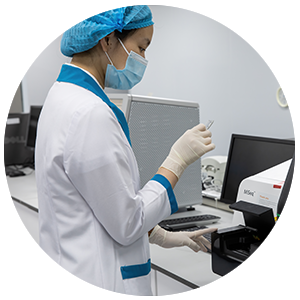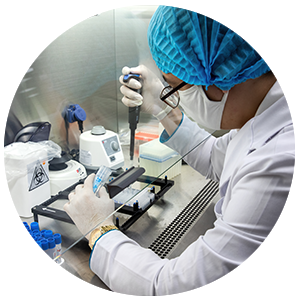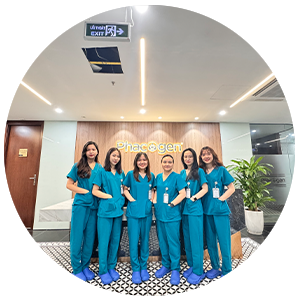Hạnh phúc của cha mẹ là được đón con chào đời khỏe mạnh. Nhưng với những gia đình mang bệnh di truyền, hành trình ấy đầy rẫy thử thách. Nhờ ứng dụng công nghệ Karyomapping trong PGT-M, một gia đình tại Viện Mô phôi Lâm sàng Quân đội – Học viện Quân Y đã tìm lại hy vọng sau khi hai con đầu mắc SMA.
Khi căn bệnh di truyền gieo rắc nỗi đau
Không phải gia đình nào cũng có được may mắn sinh con khỏe mạnh. Với một cặp vợ chồng trẻ, hạnh phúc làm cha mẹ đã nhiều lần bị thử thách khắc nghiệt. Cả hai đứa con đầu lòng đều phát triển bình thường trong giai đoạn đầu, nhưng rồi lần lượt xuất hiện dấu hiệu chậm đi lại. Sau khi đưa con đi khám, cả hai bé đều được chẩn đoán mắc bệnh teo cơ tủy (SMA) – một căn bệnh di truyền đơn gen hiếm gặp nhưng có tỷ lệ không hề nhỏ tại Việt Nam.
.
Theo BSCKI. BSNT Nguyễn Ngọc Nhất (Viện Mô phôi Lâm sàng Quân đội – Học viện Quân Y): “Bệnh teo cơ tủy có tỷ lệ mang gen khoảng 1/50 người tại Việt Nam. Khi cả bố và mẹ đều mang gen bệnh, nguy cơ sinh con mắc bệnh là 25%. Chính vì vậy, việc tìm ra giải pháp tối ưu để loại bỏ nguy cơ này là hết sức cấp thiết.”
Karyomapping – “vũ khí hiệu quả” trong PGT-M
Trong hoàn cảnh ấy, sự phối hợp chặt chẽ giữa đội ngũ bác sĩ của Viện Mô phôi Lâm sàng Quân đội và công nghệ Karyomapping do Phacogen triển khai đã trở thành “chìa khóa vàng” giúp lựa chọn được phôi khỏe mạnh, không mang gen bệnh.
.
Những ưu điểm nổi bật của Karyomapping:
.
+ Toàn diện & chính xác: sử dụng hơn 400.000 điểm đánh dấu SNP phủ kín hệ gen, phát hiện chuẩn xác các vùng gen bệnh, kể cả ở những vị trí khó như telomere hay centromere.
+ Nhanh chóng & tiện lợi: không cần lấy mẫu máu từ họ hàng, trả kết quả chỉ trong 7 ngày – thay vì phải chờ 1–3 tháng như phương pháp truyền thống.
+ Chuẩn hóa & an toàn: quy trình được kiểm soát nghiêm ngặt, giảm thiểu sai sót, đồng thời tiết kiệm chi phí cho gia đình.
+ Tăng cơ hội làm cha mẹ: giúp lựa chọn phôi tốt, bỏ qua phôi mang gen bệnh, tối ưu khả năng làm tổ và thành công của IVF.
.
Bác sĩ Nhất chia sẻ: “Karyomapping giúp quá trình xét nghiệm trở nên thuận tiện, chính xác và hiệu quả hơn rất nhiều so với các phương pháp truyền thống. Đây thực sự là công cụ hữu ích, đặc biệt với những ca bệnh di truyền hiếm.”
Hy vọng mới cho hàng ngàn gia đình Việt
Nhờ PGT-M ứng dụng Karyomapping, người mẹ trong câu chuyện trên đã vượt qua nỗi đau, thực hiện IVF thành công và hiện mang thai 11 tuần với một thai kỳ khỏe mạnh, loại bỏ hoàn toàn nguy cơ di truyền SMA cho con.
.
Phacogen tự hào đồng hành cùng các bác sĩ và bệnh nhân trong hành trình ấy – mang đến niềm tin và hạnh phúc làm cha mẹ cho hàng ngàn gia đình Việt.
Xem thêm toàn bộ bài phỏng vấn tại đây:
https://www.facebook.com/watch/?v=1303908311390911





